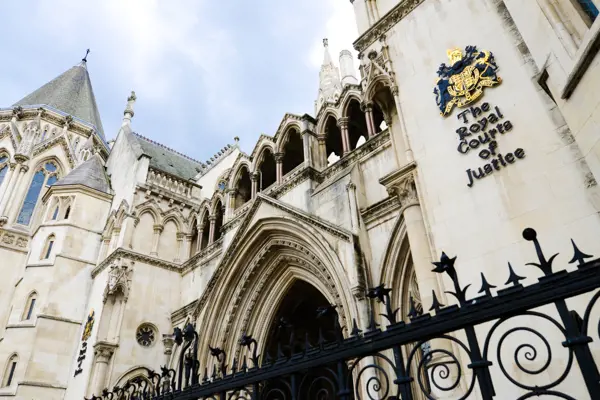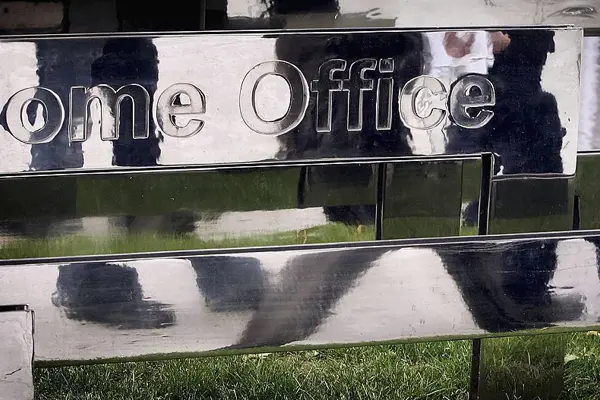High Court rules doctors should consult on DNR orders for disabled patients
High Court rules that doctors must consult the family of patients without mental capacity, or their carers, before putting Do Not Resuscitate orders on their medical records
Posted on 13 November 2015
A landmark judgment by the High Court has ruled that carers for patients without mental capacity should be consulted before a do not resuscitate order is placed on the patient’s medical records.
The judgment, handed down today (Friday 13 November 2015), found that the decision to impose a Do Not Attempt Cardio-Pulmonary Resuscitation ‘DNACPR’ order on a 28-year-old man with cerebral palsy, without the knowledge of his family, was a violation of his Article 8 rights, under the Human Rights Act.
“It has been a long and emotional four years but it now finally feels like we have justice for Carl."
Elaine Winspear
Carl Winspear died shortly after 11.00 pm on the 3 January 2011 after being admitted to Sunderland Royal Hospital with a chest infection.
Carl had been born with cerebral palsy, epilepsy, spinal deformities and other associated health conditions. Despite these disabilities his mother Elaine Winspear describes Carl living an enjoyable life, receiving full time care from his family.
On 2 January 2011, Carl was admitted to Sunderland Royal Hospital with a chest infection. At 0300 on the morning of 3 January 2011, Dr Swarbrick the specialist registrar in cardiology placed a DNACPR order on Carl’s notes without his mother’s knowledge or any attempt to discuss it with her before its insertion.
The next day Mrs Winspear, still unaware of the DNACPR order, spoke to Dr Farrer, a consultant cardiologist and, at the time, Clinical Director of the directorate of emergency care of the hospital.
She expressed to Dr Farrar her strong disagreement with the suggestion that a DNACPR be imposed on Carl and didn’t want him treated differently from any other patient.
Following this conversation, the DNACPR order on Carl was cancelled at approximately 1230.
Carl was moved to an intensive care unit at 1440 after his condition deteriorated and he died of a bronchial-pneumonia illness at 2305 on 3 January 2011.
The case of Carl Winspear mirrors that of Janet Tracey who had mental capacity and had expressed a wish to be consulted but had not been before a DNACPR order had been placed on her medical records.
In a landmark judgment in June 2014 the Court of Appeal established that whilst clinical decisions remained the responsibility of the medical professional, there should be a presumption in favour of patient involvement in the decision making process and there needed to be convincing reasons not to involve a patient.
Today’s judgment found that the doctor who placed the DNACPR on Carl should have consulted with Carl’s mother before placing the order on his medical records.
In today’s judgment at the High Court Mr Justice Blake said:
“…alternatively, she [Elaine Winspear] contends that it was both practical and appropriate and the least intrusive means of respecting Carl’s rights to have deferred a decision in respect of DNACPR until later in the morning of 3 November when the claimant could attend at a face to face meeting and the ultimate decision could have had the benefit of the input of the other members of the clinical team.” [Para 40]
“If there has been consultation, or a s.4(7) compliant reason to dispense with it, then section 5 MCA [Mental Capacity Act] protects the doctor and through him the defendant from liability for a breach of s.6 HRA 1998 through breach of the procedural obligation in article 8.” [Para 43]
In his conclusions Mr Justice Blake stated:
“There is nothing in the case of Tracey or the Strasbourg case law to suggest that the concept of human dignity applies any the less in the case of a patient without capacity. I accept the claimant’s case that the core principle of prior consultation before a DNACPR decision is put into place on the case file applies in cases both of capacity and absence of capacity.” [para 45]
Carl’s Mother, Elaine Winspear, said: “It has been a long and emotional four years but it now finally feels like we have justice for Carl.
“I was Carl’s voice and I feel that I was left out of a critical decision in his life, a decision which I should have been consulted on as his mother and his carer.
“Lessons must be learned from this case and the way in which these types of orders are imposed on people and a national policy should be put in place for all Trusts so that it cannot happen again and so that doctors stay within the law.
“These orders should be discussed and signed for by both parties before being placed or cancelled. My Family and I would like to thank Merry Varney and Leigh Day, our barristers Jeremy Hyam and Kate Beattie.
Merry Varney from the Human Rights team at Leigh Day, who represented Elaine Winspear, said: “Carl was unable to discuss his medical treatment with his doctors, and relied on his mother and other family to do this for him.
Today’s Judgment makes it clear that it is not just a matter of good practice but a legal requirement for doctors to consult with family and carers before imposing DNACPR orders on patients without capacity to discuss resuscitation themselves, unless there are clear and convincing reasons not to.
“Imposing a DNACPR order is a sensitive and important decision, and now the Courts have made it very clear that it is not a decision for doctors to take alone. Clinical judgment plays a pivotal role in the decision making process, however a patient’s views and wishes, whether voiced by them directly or by another on their behalf, must be obtained.
“I hope the Judgment prompts all those involved in making these decisions, and the authors of the current professional guidance, to revisit their policies and practices ensure patients’ human rights are upheld.”
Jan Tregelles, CEO of Mencap, said:
“Today’s judgment is a landmark for people with a learning disability, and their families.
“Many families who have lost their loved ones to poor care within the NHS have told us about the inappropriate use of Do Not Attempt Resuscitate (DNAR) Orders. Like this tragic case, they tell us that DNAR notices have been applied without their knowledge or involvement in the decision. DNAR orders have also been applied hastily, in inappropriate situations, solely on the basis of a person’s learning disability.
“Too often families of people with a learning disability who lack capacity to make their own decisions about care or treatment are excluded from decisions. Despite the Mental Capacity Act saying they must be consulted. This can have devastating consequences. Families often have important knowledge about their loved one and it is vital that this is used when decisions are being made.
“The Mental Capacity Act is there to protect people who lack capacity and it is crucial it is followed. Professionals must be held to account when this doesn’t happen.
“1,200 people with a learning disability are dying avoidably in the NHS every year. For real change to happen, professionals need to be properly trained on how to care for people with a learning disability and also know that there will be serious repercussions for failures to carry out their legal duties.”

